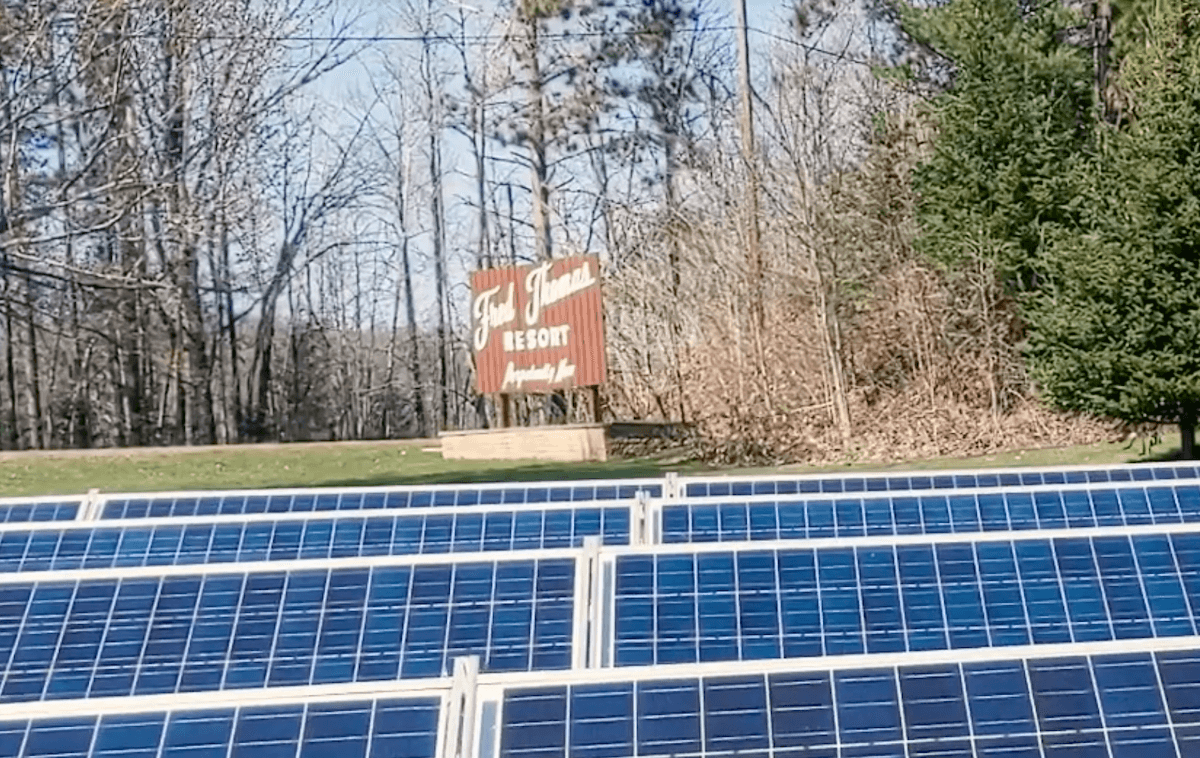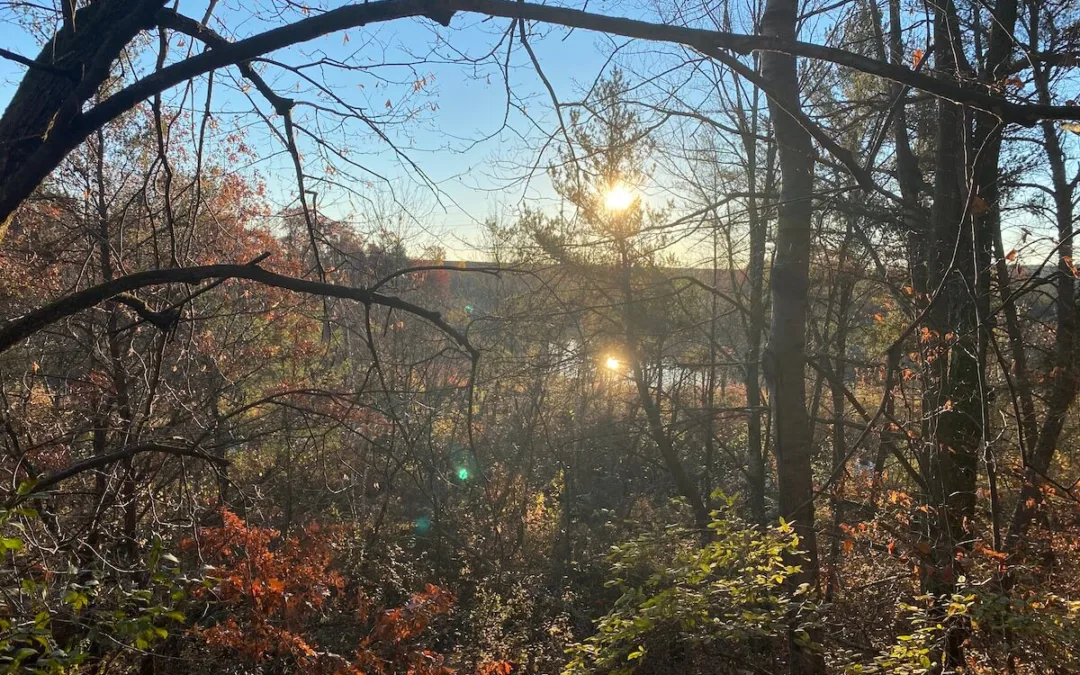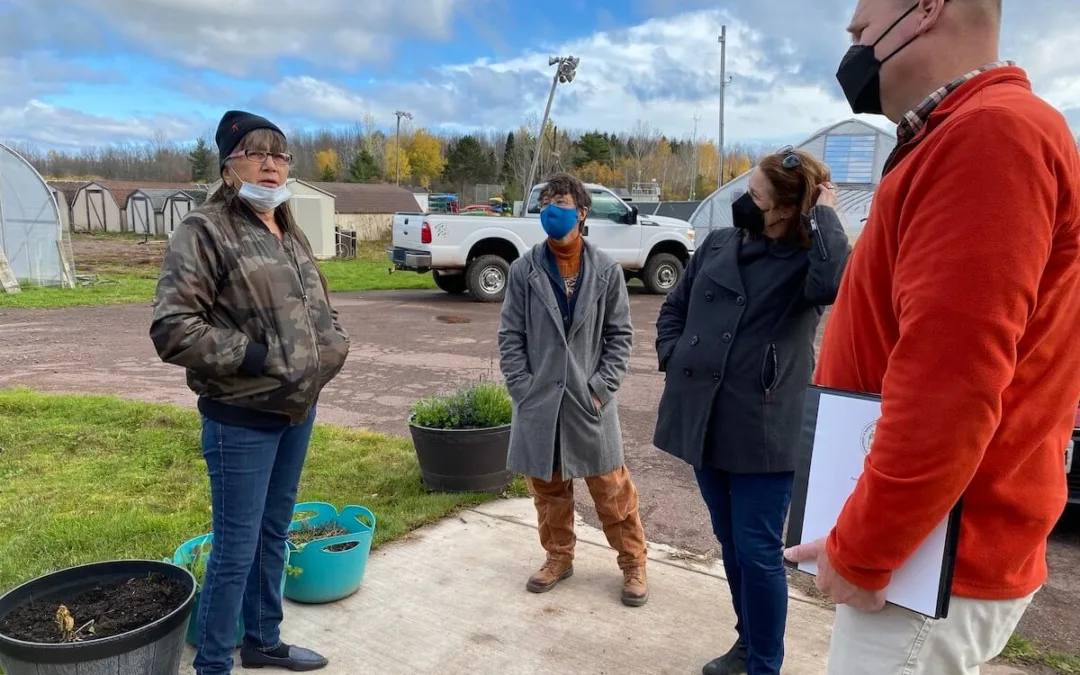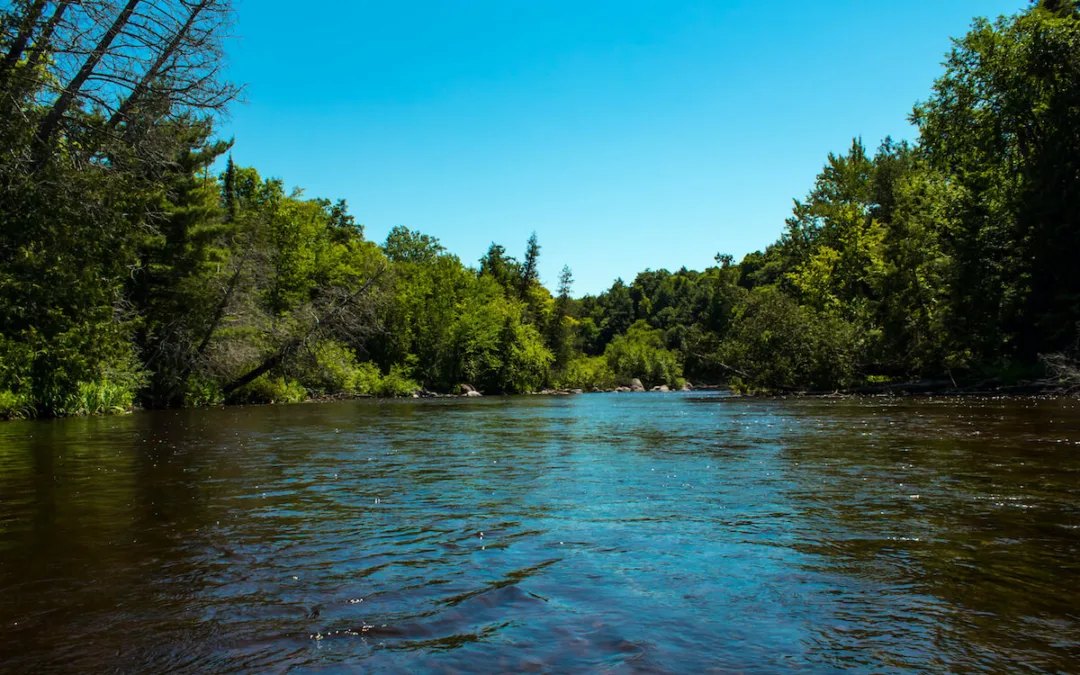
#image_title
#image_title
Linda Herscher sees what winter and summer changes have done to their family resort as it passes to a fourth generation.
[Editor’s Note: For more stories in our “No Time to Lose” series, see our hub HERE.]
For nearly a century families have used the Fred Thomas Resort in Birchwood as the centerpiece of a family getaway, enjoying fishing, boating, snowmobiling and the region’s scenic setting.
But the future of such outings and the tourism sector in Wisconsin itself are in danger, the resort’s owners say, as climate change creates adverse environmental conditions that make such activities less enjoyable and less available in upcoming years.
Warming temperatures throughout the year are altering the climate and reducing the amount of outdoors activities available, resort owner Linda Herscher said. Back when her parents owned the resort, Herscher remembers people staying at the lodge throughout the winter months, when snowmobiling was a popular activity.
But as the average temperature has climbed in Wisconsin and elsewhere, those opportunities have melted away along with the snow, she said.
“It got to the point where they couldn’t be sure they would have enough snow, and my parents decided to quit the winter business because of it,” she said.
During the last 50 years, winter temperatures across the U.S. have increased an average of 3 degrees Fahrenheit. In Wisconsin, that figure is 4.6 degrees.
As Linda’s son Dan takes over the resort, he recognizes the adverse impact climate change poses to his business and other tourism operations in the state. He has watched not only as Wisconsin has received less snow and its temperatures have climbed, but also warmer summers that have helped spur poorer water quality and more algae blooms.
Impaired waters have led to worse conditions for fishing, one of northern Wisconsin’s top tourist attractions. Walleye populations in Wisconsin lakes have dropped 35 percent during the past 30 years, a byproduct of warmer water and pollution.
“Climate change is definitely a burden on our business,” Dan said.
The loss of more tourism-related jobs would have a significant, adverse impact on Wisconsin’s economy. One of every 18 jobs in the state is tourism-related, and tourism is a $22 billion per-year industry.
To try to address those challenges and reduce their carbon footprint, the Herschers are enacting environmentally friendly measures that include installing LED lighting, more energy efficient appliances and a solar array.
“These are things that save us money as a business and also help make us leaders in this area,” Dan said.
For decades Linda has watched as families have returned year after year, generation after generation, enjoying the resort where she and they share so much history. She feels grateful for the opportunity to grow up in and operate the resort, to become long-time friends with many of the people who stay there.
Now, as climate change continues to adversely impact the business, she hopes her son will be able to share in those same joys, but she worries he may not.
“Something precious to us and important to us, not just the financial part but the friendship part, it would be like losing friends” if the resort closes, she said.
Politics

‘Radical’ Republican proposals threaten bipartisan farm bill, USDA Secretary says
In an appearance before the North American Agricultural Journalists last week, United States Department of Agriculture (USDA) Secretary Tom Vilsack...

New Biden rule protects privacy of women seeking abortions
Under the new rules, state officials and law enforcement cannot obtain medical records related to lawful reproductive health care with the goal of...
Local News

Readers Poll: Top Bowling Alleys in Wisconsin
Looking for the best bowling in Wisconsin? Look no further! Our readers have spoken in our recent poll, and we have the inside scoop on the top...

8 Wisconsin restaurants Top Chef judges are raving about
Top Chef’s 21st season is all about Wisconsin, and on-screen, it’s already apparent that the judges feel right at home here. But, while filming in...




